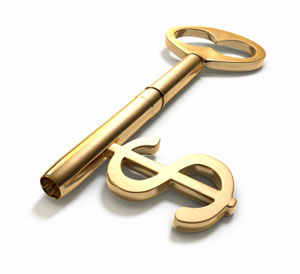What Are Mortgage Points?
By Liz Clinger Updated on 7/19/2017 The term "point" refers to a lender fee. One point is equivalent to 1% of your mortgage loan. If mortgage points sound tricky, it’s because they can be.
The term "point" refers to a lender fee. One point is equivalent to 1% of your mortgage loan. If mortgage points sound tricky, it’s because they can be.
It is best that you are prepared to ensure the lowest interest rate and prevent unexpected closing costs. Let’s begin by defining the two types of mortgage points and how they will affect your loan.
Origination Points
These are percentage based fees on the total cost of the mortgage loan. These fees are applied to the loan rate. If your lender requires you to pay origination points, don't worry. You'll probably notice that this same lender isn't charging you an origination fee.
This is because origination points amount to the cost of the origination fee - they're just calculated differently. Origination points are far less common than discount points and are not always tax deductible.
Example: A fee of 1 point on a $400,000 mortgage loan is $4,000. (400,000 x 0.01 = 4,000)
Discount Points
A discount point is prepaid interest. These are percentage based savings on the total interest owed. Lenders offer this as an incentive to pay more at the time of purchase in return for getting lower interest rates during the lifetime of the loan.
Discount points are essentially loan interest paid up front, in a single lump sum, before accrual. As a result, points are typically tax-deductible.
For example, if a borrower is taking out a mortgage for $200,000 at an interest rate of 4.5%, he or she could pay the lender a point, equal to $2,000, in order to have that interest rate reduced to 4.475%. This is called "buying down" a loan.
The lender must agree to this, of course, and all lenders differ on what they're willing to allow. Typically, borrowers can access the best rates by paying one or more points up front.
Both Origination and Discount Points are included in the APR (Annual Percentage Rate) which should also be disclosed when obtaining your loan rate. The APR reflects the total cost of borrowing over the life of the loan.
How do Mortgage Points Affect My Loan?
Origination Points
- Seek mortgage lenders with lower origination points for lower mortgage loan costs.
- Each point will raise the total cost by including the fees charged.
Discount Points
- Each point paid will usually lower the interest rate on your loan by .25% (e.g., 1% discout points may lower your rate from 4.50% to 4.25%).
- Paying more upfront will earn you more points to reduce the overall interest owed.
- You will enjoy monthly savings over the life of your if you pay money upfront today.
Before you pay any discount points you will want to consider how long you will be in the home (or have your mortgage) and compare it to the "break-even" period of the points paid.
You can ask your mortgage professional or find Points Calculators on the internet to help you calculate this information. If your break-even period is seven years but you intend to have your mortgage for only five years, you may want to re-consider the purpose of paying points.
Now that you understand mortgage points, you'll be prepared to negotiate fees and discounts with your lender.

Didn't find the answer you wanted? Ask one of your own.
Related Articles
Ask our community a question.
Searching Today's Rates...

Featured Lenders
Lisa Stepp
RBS Citizens
Clifton Park, NY







